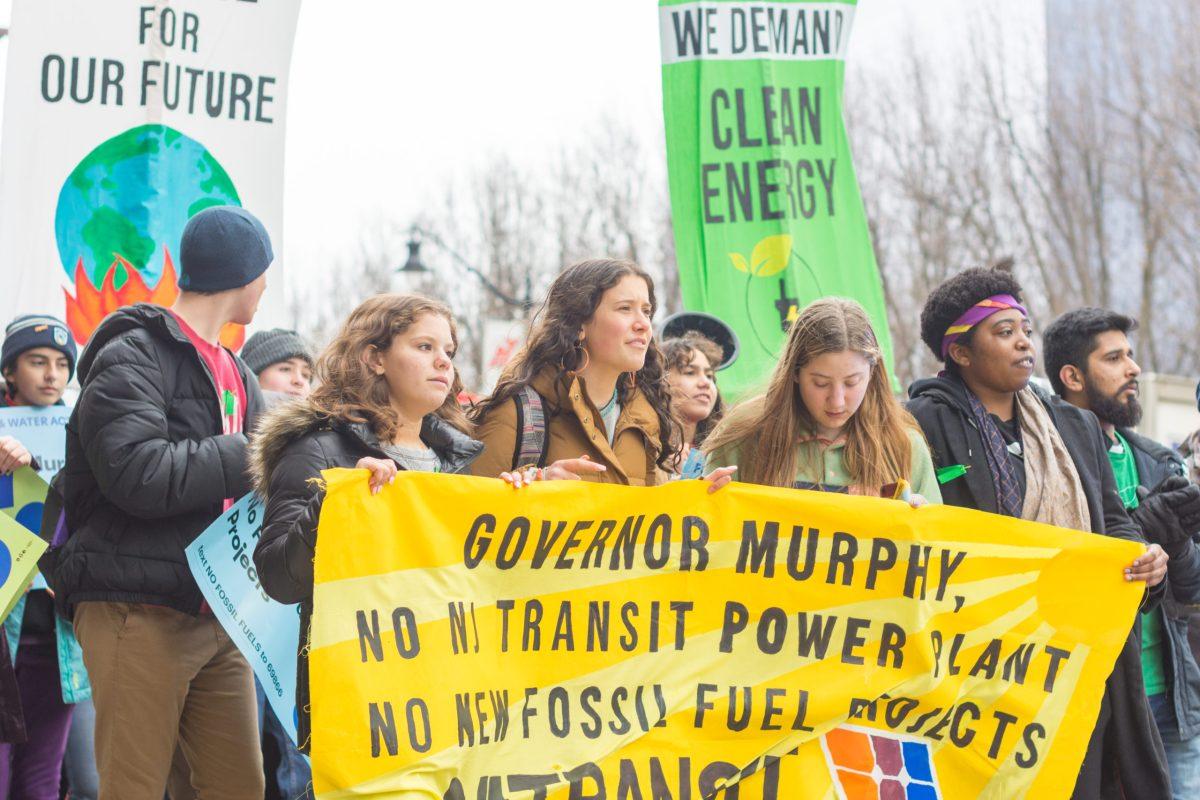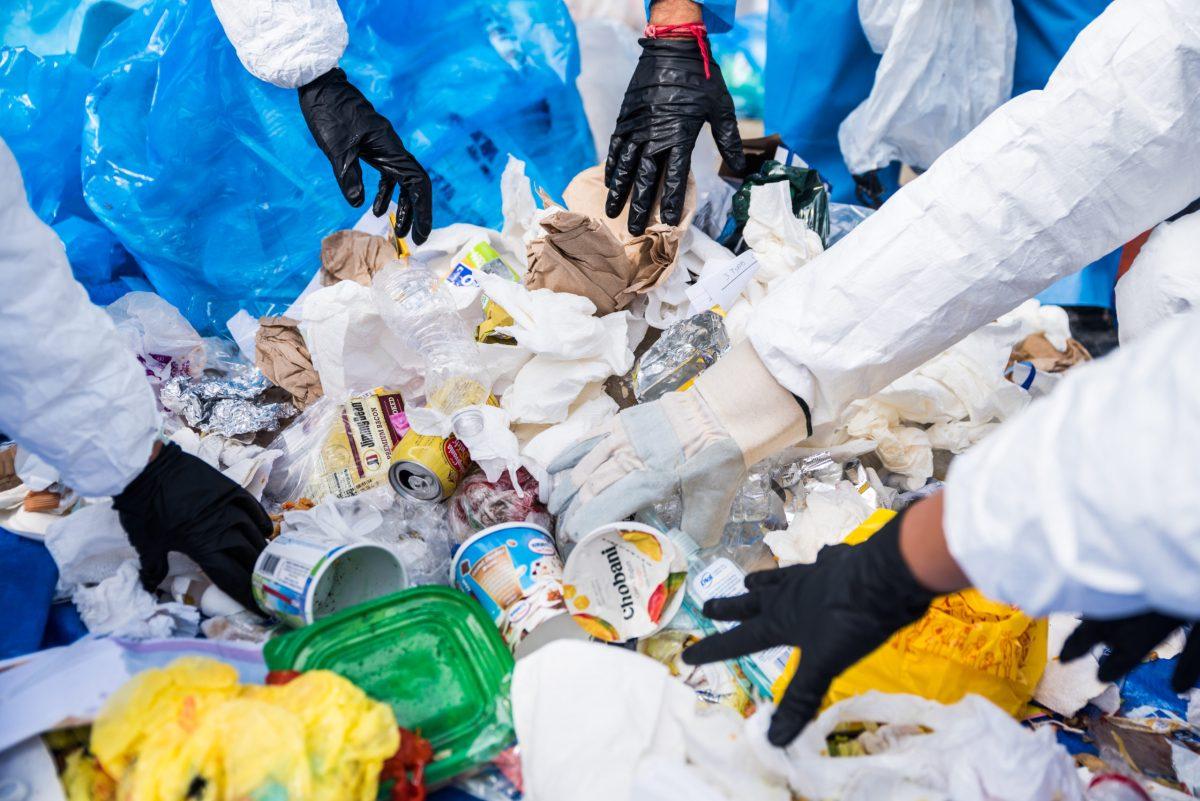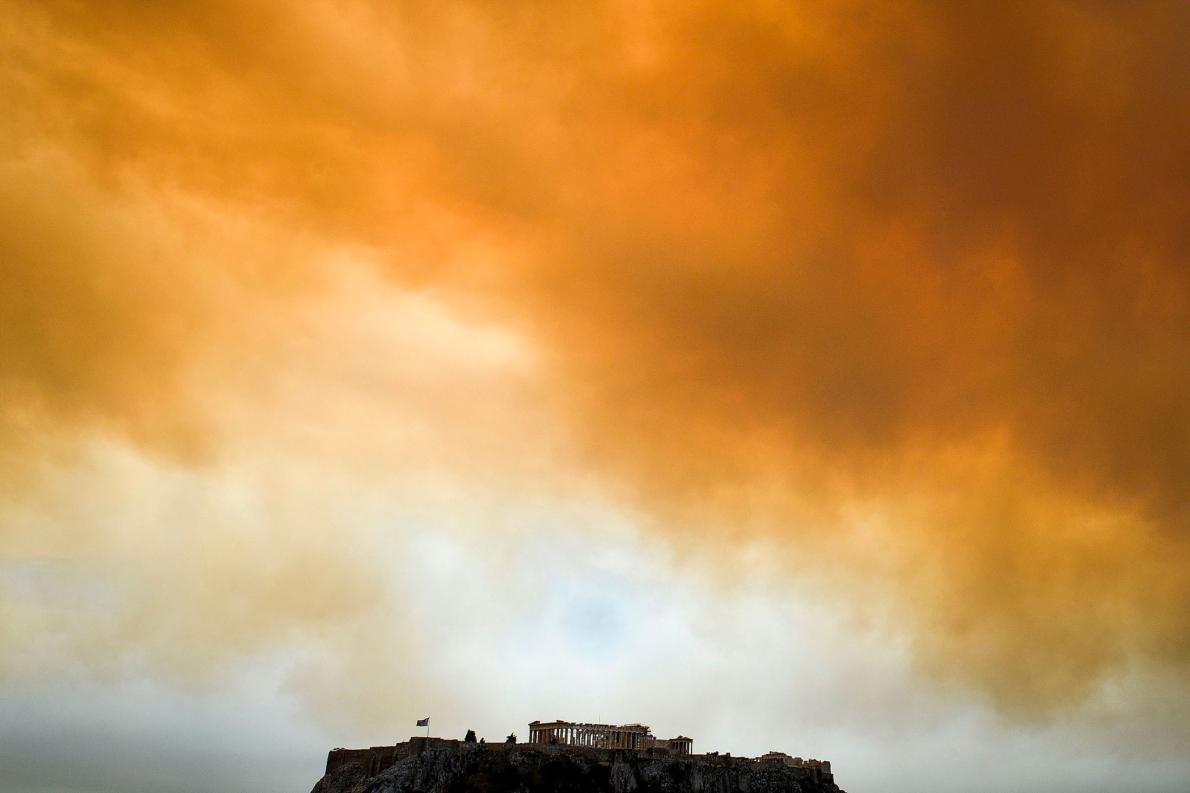[one_third]Liberal – Anthony McInnis
The impending doom of climate change related disasters is a growing concern amongst people, especially to younger generations who will feel more of the effects. More frequent and severe hurricanes, droughts and wildfires are just some of the projected challenges people will face just by 2100. At this point the science is settled on the debate of whether climate change is happening, and whether it’s man made. Right now is the time we must decide what we’re going to do about climate change and part of that is determining how the government, both domestically and internationally, must act.
Climate change is already happening and we’re starting to see the major effects of it. Realistically, if we have a chance at preventing the worst impending effects, then most industrialized countries will have to invest heavily in accessible public transportation, clean and renewable energy sources and novel methods of farming. This would have to be done within a decade or two before it really becomes too late to make meaningful change.
If you care about preventing the worst effects of climate change, then a purely free market laissez-faire approach won’t work. What would need to be done is to build and replace entire industries. Every time there was a major industrial development in the United States, the government was involved to some degree or another. Without the government’s involvement, railroads or the internet would have not been accessible nearly as quickly as they were in this country. I’m not arguing the government is a magic solution to anything, but rather that it is the only mechanism that can meaningfully address the issue before it’s too late.
Nuclear power is, at this point at least, the only power source that can replace our current consumption. Franky, I wish climate change activists discussed it. If we were to build nuclear power plants to replace our dependence on fossil fuel, it would require an absurd amount of plants to be built over a relatively short period of time. Since nuclear power can be catastrophic if mishandled, there are obviously numerous checks and approvals that go into building them which takes roughly five years to develop. It will not be possible to create enough nuclear power plants in time without support by the government through subsidies or incentives.
But even so, it still may not be feasible to stop climate change with the current system we have. That’s also why it is up to individuals as well. Most Americans don’t have the income to be able to eat organically or drive efficient cars. So, that makes it all the more important for the people who can live that lifestyle to do so. Because no matter what, the more we care about helping the planet, the better.
[one_third]Independent – Daniil Ivanov
Environmental issues, simply put, cannot be left in the hands of local government. Although I usually believe in state and local rights to self-governance, there have been far too many cases of states and municipalities abandoning the health and rights of their citizens for the short term benefits in commerce.
If you want an example of corporate greed and resource mismanagement, you have to look no further than Newark, New Jersey. The lower eight miles of the Passaic River are deemed to be a superfund site by the U.S. Environmental Protection Agency, which means it’s at the highest level of priority of environmental catastrophe that the government can apply to a site. Decades of toxic dumping from roughly 100 companies in the area has made the Passaic River unfishable—though hungry residents still fish and crab here—and unusable by the public.
Newark is also still in the midst of the Newark lead water crisis, a result of absolute mismanagement of the municipal water system that has now resulted in an expensive project that has to be hastily done and with detrimental health effects to Newark residents.
If local environmental issues are so grossly mismanaged in states and municipalities all over the country, I would not trust them in creating the tough legislation required to solve the global issue of climate change.
For most issues, I think that state and local government is perfectly adequate. But in the same sense that you wouldn’t trust New Jersey and Texas to collaborate in a military effort—hence why the military is reserved for the national government—the solutions of such a global issue must be treated in the same way that we treat national defense.
In the same way that we have nuclear pacts and rules of war, our governments must implement the same form of international agreements to combat the spread of climate change. Though we do have some climate and conservation pacts and agreements already, these carry very little weight and have no mechanisms of enforcement.
Climate change must be treated as the national security threat that it is, and the resulting impacts such as unemployment in industries such as oil and gas must also be addressed at a national level.
[one_third]Conservative – Mark Pothen
In the age of policy like the Green New Deal, the question of how involved the government should be in mitigating the effects of climate change comes up very often. The government’s basic role is to stop any actor from infringing on your right to life, liberty and pursuit of happiness, but there are limitations to how involved it should be.
For example, the EPA rightly has the power to regulate the disposal of waste into reservoirs because the pollution of drinking water poses a clear threat to human life. With carbon dioxide and climate change, however, the argument becomes more complicated. While most agree that climate change will have an adverse effect on our lives, instead of having a reasoned debate, many would rather sensationalize the issue. This can be most clearly seen by characters like Alexandria Ocasio Cortez and Greta Thunberg, who proclaim that the end is nigh and that the government should enact extensive control immediately because the threat is so near and present. Recently at the MLK Now event, Cortez went so far as to say “the world is going to end in 12 years if we don’t address climate change,” which she has since backtracked on.
The government should do what it is good at and move to the side to let the free market invest to create goods and services that move the country in a greener direction. One of the more recent examples of this would be the monstrous popularity of Tesla and other electric vehicles. Boosted by the growing popularity of the Model 3, Tesla sold 367,500 vehicles in 2019, which is more than the company sold in 2018 (around 245,000) and 2017 (101,312) combined. Furthermore, it seems like every major car manufacturer is heavily investing in electronic vehicles of their own because of the novel market the technology provides.
According to the International Energy Agency, investments in renewable energy have eclipsed those in fossil fuels and nuclear power. In 2016, global investment in renewable energy totaled $297 billion, more than twice the $143 billion invested in non-renewable energy. A recent report from Lazard, a financial advisory firm, showed that the cost of solar power has dropped dramatically in the last decade and that solar power is now cheaper to produce than its coal or natural gas equivalents. Communities around the world now have the option of an energy source that is not only cleaner than fossil fuels but also more economical.
Free markets care only about the profits, and because the demand for green products has increased, it’s clear that sustainability is profitable, and the free market is adjusting for that. The government has no role in radically restructuring the American economy to mitigate the adverse effects of climate change when the market can fill that role.





































